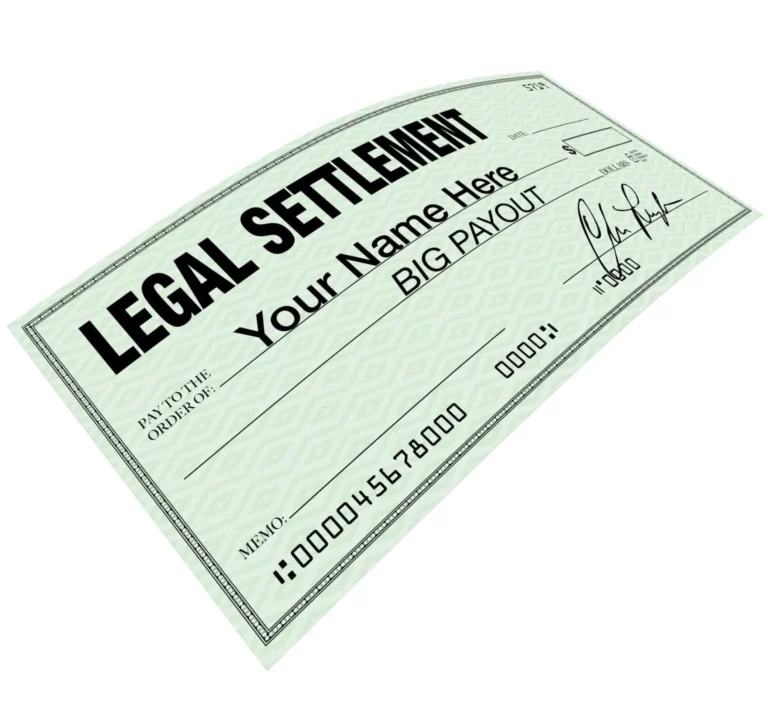The prospect of losing one’s home to foreclosure is a daunting reality for many homeowners across the United States. As economic uncertainties persist, understanding the legal options available for foreclosure defense becomes increasingly crucial. This comprehensive guide explores the various strategies and legal avenues that homeowners can pursue to protect their property and financial interests when facing the threat of foreclosure.
At its core, foreclosure defense encompasses a range of legal tactics and procedures designed to challenge or delay the foreclosure process. The primary goal is to provide homeowners with the opportunity to retain their property or, at the very least, exit the situation on more favorable terms. As we delve into the intricacies of foreclosure defense, it’s important to recognize that each case is unique, and the effectiveness of different strategies may vary depending on individual circumstances and state laws.
One of the first steps in mounting a successful foreclosure defense is to thoroughly review all loan documents and communications with the lender. This scrutiny may reveal errors or violations that can be leveraged to challenge the foreclosure. Common issues include improper notice, incorrect calculation of amounts due, or failure to follow proper foreclosure procedures. In some cases, lenders may have engaged in predatory lending practices or violated consumer protection laws, providing grounds for legal action.
En loan modification process is often a critical component of foreclosure defense. This involves negotiating with the lender to alter the terms of the mortgage, potentially lowering monthly payments or extending the loan term to make it more manageable for the homeowner. While loan modifications can be challenging to obtain, they represent a win-win situation when successful, allowing the homeowner to retain their property while ensuring the lender continues to receive payments.
For homeowners facing temporary financial hardship, seeking a forbearance agreement may be a viable option. Forbearance allows for a temporary pause or reduction in mortgage payments, providing breathing room for homeowners to regain their financial footing. It’s crucial to understand the terms of any forbearance agreement, particularly how missed payments will be handled once the forbearance period ends.
In some cases, challenging the lender’s standing to foreclose can be an effective defense strategy. This approach questions whether the entity initiating the foreclosure has the legal right to do so. With the complex history of mortgage securitization and transfers, establishing a clear chain of title can sometimes be challenging for lenders, potentially providing a basis for dismissal or delay of the foreclosure action.
En proceso concursal often plays a significant role in foreclosure defense strategies. Filing for Chapter 13 bankruptcy, in particular, can provide immediate relief through the automatic stay, which halts all collection activities, including foreclosure proceedings. This pause allows homeowners to propose a repayment plan that may include catching up on mortgage arrears over time while maintaining current payments.
For homeowners dealing with underwater mortgages, where the property value is less than the outstanding loan balance, exploring options like a short sale o deed in lieu of foreclosure may be appropriate. While these alternatives still result in the loss of the home, they can be less damaging to the homeowner’s credit and financial future compared to a completed foreclosure.
The emergence of foreclosure mediation programs in many jurisdictions has provided an additional avenue for homeowners to negotiate with lenders. These programs, often mandated by state law, bring homeowners and lenders together with a neutral third party to explore alternatives to foreclosure. Mediation can lead to loan modifications, repayment plans, or other mutually agreeable solutions that avoid foreclosure.
It’s important to note that foreclosure laws and procedures vary significantly from state to state. Some states require judicial foreclosure, where the lender must file a lawsuit to foreclose, while others allow for non-judicial foreclosure processes. Understanding the specific requirements and timelines in your jurisdiction is crucial for developing an effective defense strategy.
El papel de housing counselors and legal aid organizations cannot be overstated in the context of foreclosure defense. These resources can provide valuable guidance on navigating the complex landscape of foreclosure prevention options. Many homeowners benefit from working with HUD-approved housing counselors who can offer free or low-cost assistance in understanding options and communicating with lenders.
For those facing foreclosure due to job loss or reduced income, exploring unemployment forbearance programs or hardship assistance offered by lenders or government agencies may provide temporary relief. These programs are designed to bridge the gap during periods of financial difficulty, allowing homeowners to maintain their housing stability while seeking new employment or income sources.
The impact of the COVID-19 pandemic has led to the implementation of various foreclosure moratoriums and relief programs. While many of these temporary measures have expired, their effects continue to ripple through the housing market and foreclosure landscape. Homeowners should be aware of any lingering protections or programs that may apply to their situation, as well as new initiatives that may emerge in response to ongoing economic challenges.
One often overlooked aspect of foreclosure defense is the potential for lender liability claims. In cases where lenders have engaged in unfair or deceptive practices, homeowners may have grounds to pursue legal action against the lender. This can include violations of consumer protection laws, breaches of contract, or failure to follow proper servicing guidelines. Successfully pursuing such claims can provide leverage in negotiations or even result in damages that can be used to resolve the underlying mortgage issues.
El papel de property valuation in foreclosure defense should not be underestimated. Challenging the lender’s appraisal of the property’s value can be particularly relevant in states with anti-deficiency laws or in situations where the homeowner is seeking a loan modification. An accurate and favorable appraisal can strengthen the homeowner’s position in negotiations and potentially open up additional options for resolving the foreclosure situation.
For homeowners with second mortgages or home equity lines of credit (HELOCs), the concept of lien stripping en quiebra can be a powerful tool. In Chapter 13 bankruptcy, if the value of the home is less than the balance of the first mortgage, it may be possible to “strip off” the second mortgage, treating it as unsecured debt. This can significantly reduce the overall debt burden and make it more feasible to retain the home.
The intersection of foreclosure defense and consumer protection laws provides another avenue for homeowners to explore. Federal laws such as the Real Estate Settlement Procedures Act (RESPA) and the Truth in Lending Act (TILA) impose specific requirements on lenders and servicers. Violations of these laws can provide grounds for legal action or leverage in negotiations. For example, failure to properly respond to a qualified written request under RESPA can result in statutory damages and strengthen the homeowner’s position.
In recent years, the issue of zombie foreclosures has gained attention in many communities. These situations occur when homeowners abandon properties believing foreclosure is imminent, only to find out later that the lender never completed the process. This limbo state can lead to a host of legal and financial complications. Homeowners facing potential foreclosure should be aware of this phenomenon and ensure they have clear communication with their lender regarding the status of any foreclosure proceedings.
El papel de technology in foreclosure defense has evolved significantly. Online platforms now offer tools for homeowners to track their foreclosure cases, submit documents, and communicate with lenders or housing counselors. Additionally, data analytics and artificial intelligence are being employed to identify patterns of predatory lending or servicing abuses, potentially uncovering systemic issues that can be leveraged in individual cases or class actions.
For homeowners who have already lost their homes to foreclosure, it’s important to be aware of post-foreclosure rights. In some jurisdictions, former homeowners may have the right to redeem the property within a certain period after the foreclosure sale. Additionally, they may be entitled to any surplus funds if the property sold for more than the outstanding debt. Understanding these rights can be crucial for mitigating the financial impact of foreclosure and potentially reclaiming lost equity.
El concepto de strategic default has been a topic of debate in foreclosure discussions. This involves homeowners choosing to stop making mortgage payments, typically on underwater properties, even if they have the financial means to continue. While this approach carries significant risks and ethical considerations, it has been used by some as a negotiating tactic to force lenders to the table for loan modifications or short sales.
Environmental issues can add another layer of complexity to foreclosure defense strategies. Properties with environmental contamination or those located in flood-prone areas may present unique challenges and opportunities in foreclosure proceedings. Lenders may be hesitant to take possession of properties with potential environmental liabilities, potentially providing leverage for homeowners in negotiations.
El papel de local ordinances in foreclosure defense should not be overlooked. Many municipalities have enacted laws aimed at mitigating the impact of foreclosures on communities. These may include requirements for lenders to register vacant properties, maintain foreclosed homes, or participate in mediation programs. Familiarity with these local regulations can provide additional tools for homeowners and their attorneys in foreclosure defense efforts.
As we look to the future of foreclosure defense, emerging trends in resolución alternativa de litigios (ADR) are worth noting. Some jurisdictions are exploring innovative approaches to resolving foreclosure cases outside of traditional court processes. These may include specialized foreclosure diversion programs or the use of online dispute resolution platforms. Staying informed about these developments can provide homeowners with additional avenues for addressing foreclosure issues efficiently and effectively.
The intersection of foreclosure defense and fair housing laws presents another important consideration. Discriminatory practices in lending, loan servicing, or foreclosure processes may violate federal and state fair housing laws. Homeowners who believe they have been subject to discrimination based on protected characteristics should explore potential fair housing claims as part of their overall defense strategy.
In conclusion, foreclosure defense encompasses a wide range of legal strategies and options designed to help homeowners protect their property and financial interests. From challenging the foreclosure process itself to exploring alternatives like loan modifications or bankruptcy, the field of foreclosure defense continues to evolve in response to changing economic conditions and legal landscapes. As homeowners navigate these complex waters, seeking guidance from experienced legal professionals and housing counselors remains crucial for developing effective strategies tailored to individual circumstances. By understanding the various tools and approaches available, homeowners facing the threat of foreclosure can take proactive steps to defend their rights and work towards positive resolutions.
Website citations:
- https://www.consumerfinance.gov/ask-cfpb/what-is-a-loan-modification-en-269/
- https://www.hud.gov/topics/avoiding_foreclosure
- https://www.uscourts.gov/services-forms/bankruptcy/bankruptcy-basics/chapter-13-bankruptcy-basics
- https://www.freddiemac.com/about/covid-19
- https://www.justice.gov/opa/pr/justice-department-announces-new-initiative-combat-redlining
- https://www.epa.gov/enforcement/landowner-liability-protections
- https://www.hud.gov/program_offices/fair_housing_equal_opp/fair_housing_act_overview









